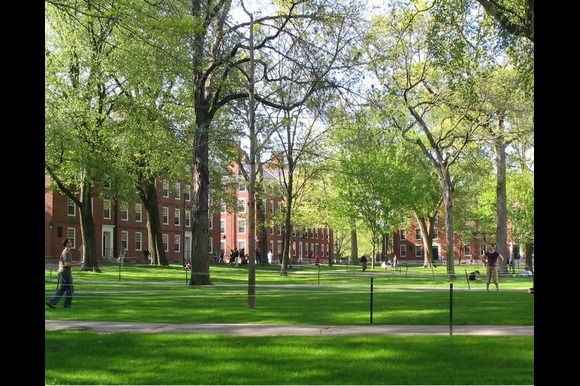In a sweeping move set to redefine the relationship between the federal government and America’s most prestigious university, the Trump administration is preparing to cancel all government contracts with Harvard University, totaling approximately $100 million. The unprecedented action significantly escalates President Donald Trump’s campaign against elite institutions of higher learning.
A draft directive obtained by The New York Times and expected to circulate among federal agencies on Tuesday instructs officials to terminate existing agreements with Harvard and identify alternative providers. The White House has called the measure a “complete severing of ties” after decades of institutional cooperation.
The order, issued through the General Services Administration (GSA), impacts contracts spread across nine federal agencies, spanning sectors such as medical research and executive education programs. Departments have until early June to report back on which contracts will be scrapped. The directive, signed by federal procurement chief Josh Gruenbaum, asserts that Harvard “continues to engage in race-based discrimination,” particularly in its admissions processes and broader campus policies. It also accuses the university of displaying a “disturbing lack of concern for the safety and wellbeing of Jewish students.”
This move marks the most dramatic escalation yet in Trump’s efforts to dismantle Harvard’s federal partnerships. Since April, the administration has frozen $3.2 billion in research grants and attempted to block the university from admitting international students — a measure that was temporarily halted by the courts.
Despite mounting pressure, Harvard’s administration has remained defiant. University president Alan Garber denounced the administration’s demands as “illegal” efforts “to control whom we hire and what we teach.” Backed by a $53 billion endowment, Harvard has launched multiple lawsuits contesting the funding freezes and student restrictions, citing violations of constitutional protections for academic freedom.
The administration further contends that Harvard has not adhered to the 2023 Supreme Court ruling prohibiting the use of race in admissions. However, first-year Black student enrollment has actually declined, from 18% to 14%, following the court’s decision.
The GSA’s directive goes beyond terminating current contracts. “We also encourage your agency to seek alternative vendors for future services where you had previously considered Harvard,” the letter advises.
Trump’s confrontation with Harvard began amid pro-Palestinian demonstrations on campuses last year. It has since evolved into a broader ideological war against elite universities, with the former president branding top schools as strongholds of “Marxist maniacs and lunatics.” On Monday, he suggested redirecting their federal funding to support trade schools instead.
Congressional Republicans have supported Trump’s campaign against elite academia by passing legislation to impose new taxes on large university endowments — a measure that could cost Harvard $850 million annually. The bill awaits Senate approval.
Harvard’s international student population — around 6,800, or over a quarter of its enrollment — faces an uncertain future if Trump succeeds in permanently blocking foreign admissions. Universities in regions like Hong Kong have reportedly started recruiting students displaced by U.S. policy changes.
A critical federal hearing on Thursday will decide whether Harvard can continue enrolling international students under a temporary judicial reprieve. Meanwhile, the university is challenging several of the administration’s other demands in court, including the elimination of diversity initiatives, mandates to cooperate with immigration enforcement, and bans on face coverings allegedly targeting pro-Palestinian protestors.
Press Freedom at Risk
This growing standoff with Harvard mirrors a broader pattern: the use of presidential power to punish institutions that refuse to align with Trump’s views — including the press. From blacklisting media outlets and launching lawsuits to hand-picking compliant reporters, the administration’s approach to journalism reflects an authoritarian impulse to suppress dissent.
Yet Trump’s actions are just one part of a global trend. Across the world, economic pressures and authoritarian governments are endangering journalists’ ability to report freely. Independent media, immune to political and financial coercion, is vital to any functioning democracy. Leaders like Trump and Hungary’s Viktor Orbán seek to undermine this by exerting control over coverage and silencing criticism.






